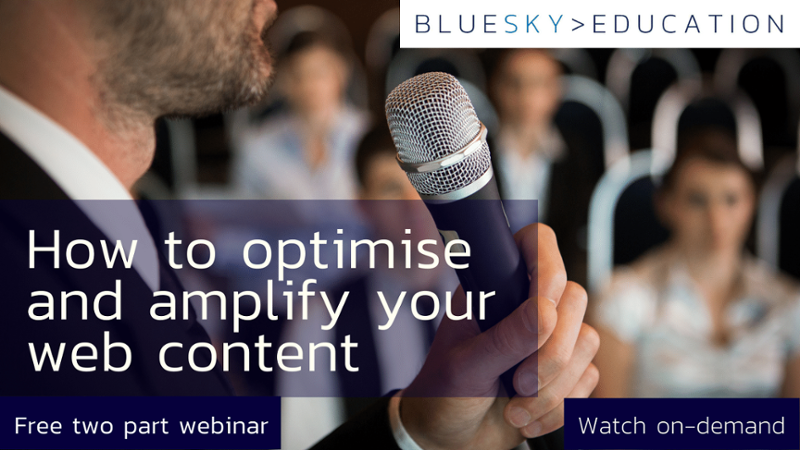When looking for information on a university, or for a specific course to study, or even for how to boil an egg, we would all probably do the same thing: Google it.
Then, when we choose which website to visit, it’s probably going to be from the first page of results. The top results you see depend on the SEO ranking of the content on that site. But what exactly is SEO?
SEO stands for ‘Search Engine Optimisation’, a technique sites can use to grow their number of visitors by increasing their visibility to search engine users. It involves optimising your website to make it more attractive to search engines based on website design and content. This is necessary if you want your website displayed as a top result to increase organic, un-paid traffic from Google, Bing or other web search engines.
How SEO works
Every time you search something on Google, or any other search engine, there can be millions of webpages containing helpful information. Search engines want to provide the best results that are of high quality and most relevant to the user’s search; you don’t want to search for ‘Masters in Management courses’ and be inundated with cake recipes.
To do this, search engines will scan, or crawl, different websites to better understand what the site is about. In a fraction of a second, search engine algorithms can find the most relevant, useful results for your search term. Search engines will also determine how easy the websites are to navigate and read, with user-friendly sites gaining higher rankings on the results page.
SEO involves making sure a website is accessible and visible amongst this plethora of search results, by making sure a website uses words that people type into search engines and provides useful and high-quality content that answer the user’s query.
Why SEO matters
A savvy SEO strategy is important if you want the public to be able to find your website and ensures your content is visible to potential students, faculty, or anyone interested in your institution. For example, let’s say you have an article on how to attract international students to online degrees. In order to get your content in front of the right people, you want to optimise this post so that it will show as a top result for anyone who searches for the phrase ‘attract international students to online degrees’ or ‘attract international students to online MBA.’ You don’t want your website’s content to be on page 28; I doubt many people get that far when looking through search results.
Here are some tips on how to implement SEO and factors to consider:
On-page SEO factors
Content marketing has a number of benefits for higher education institutions, including attracting search engines and helping connect you with site visitors. The more quality, relevant content you have, the more likely search engines will be to rank your pages higher in results. Furthermore, the more engaging and effective content you have, the more likely visitors are to spend time on your website. The key to creating content that is optimised is to have a variety of different types of content pieces that are well-written. For example, blog posts, articles, e-books, how-to guides and tutorials. You should also make sure the content is relevant for your audience. So, for the website of a higher or business education institution, this could include blog posts of student experiences, how-to guides on applying to courses, or articles explaining research results. You should also make sure that you are providing new and up-to-date content on a regular basis. This could be by frequently posting new content or regularly updating older posts.
Site pages
You should also consider how the pages of your website are optimised on-page and off-page:
- The title tag on each page tells search engines what the pages are about. This should be short and include both the keyword your content focuses on and your institute’s name.
- The meta description on your website provides search engines with more information on what each page is about. This can also be used by visitors to better understand if the page is relevant to their search. This should also include keywords.
- Subheadings are useful for making your content easier for visitors to read which improves your SEO.
- Including hyperlinks to other content on your site, can help search engines learn more about your site. For example, if I mention the role of sustainability in business education in a blog post, then I can hyperlink this to a previous post on that topic. See what I did there?
Keywords and phrases
An important thing to consider when creating content is SEO keywords and phrases. These are relevant words and phrases that a search engine user might type when making a search. Creating content around these keywords and phrases improves your chances of ranking higher for these keywords on the results pages. These keywords should be featured in the title of your content so the search engine knows what your page is about. For example, if someone from a business school is looking for information on how PR can help them with accreditations, the searches which are top on the results pages will be those which include terms such as ‘PR’, ‘business school’ and ‘accreditation’ in the title.
In summary, SEO affects whether Google can easily read and find your website. By improving SEO, you can work to expand your visibility on search engines to reach and engage with more visitors, including potential faculty or students. By creating more engaging and effective SEO-focused content, you can increase your chances of bringing in more targeted organic traffic.






